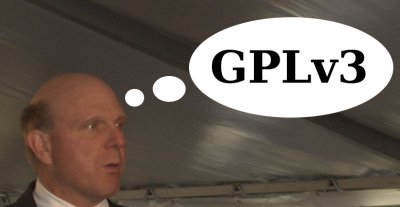

"Some people complain a lot about the anti-DRM provisions, and I would have liked to see those actually be even stronger than they are. Because currently they've got some limitations in there that limits some of the anti-DRM provisions of GPLv3 to only being applicable to consumer products. Which means it leaves out, for example, some Samba appliances.
"I'd like to see a future version of the GPL perhaps going a little bit stronger than that and applying it to the non-consumer/enterprise appliances as well" said Tridgell.
“Consider Tim Berners-Lee's motives for creating an open pool of information and ask yourself whether money is ever made on the Web.”Then, as we advanced, the man-made ambition was to (re)define ownership of information, of folklore, rather than to commoditise it. Open Source is a more reciprocal process that revolves around the assumption that information can be exchanged easily and bring benefit to everybody.
Consider Tim Berners-Lee's motives for creating an open pool of information and ask yourself whether money is ever made on the Web. The problem may emerge when people refuse to give back, to make returns (patches, money, advice). And that's completely separate from the issues of censorship and net neutrality (tiering and classes).
The transition in transportation means that physical containments of information (such as shrink-wrapped software) are no longer needed. This makes it an unnecessary barrier. It is really a philosophical question that hardly fits this Web site, but it seems to related to the issues that we find with software patents. In the case of Microsoft, not only does it insist on maintaining copyrights of code (which is perfectly acceptable), but it wishes to also own methods (never mind the actual implementation) and protocols, i.e. communication at the end points. That's what last Thursday's racketeering announcement was all about.
So, the short answer to that question is that open source is not incompatible with capitalism. That is just a Microsoft smear repeated over and over and over again (repetition does not make validity). Seeking to make profits by hindering communication, however, is a sin. The founding fathers of the United States saw the need to share ideas and something so organic simply must not be owned by an individual. If lobbyists that are paid to further promote greed actually achieve something in Congress, it does not mean they are correct. After all, these are man-made laws.
There is no such thing as an "intellectual property". Let's call it what it is: "intellectual monopoly". It's a fence. Development (so-called innovation) and profit can be sustained and even thrive without intellectual monopolies. No monopoly has ever done any good to progress. Progress is not to be judged only by currencies. ⬆